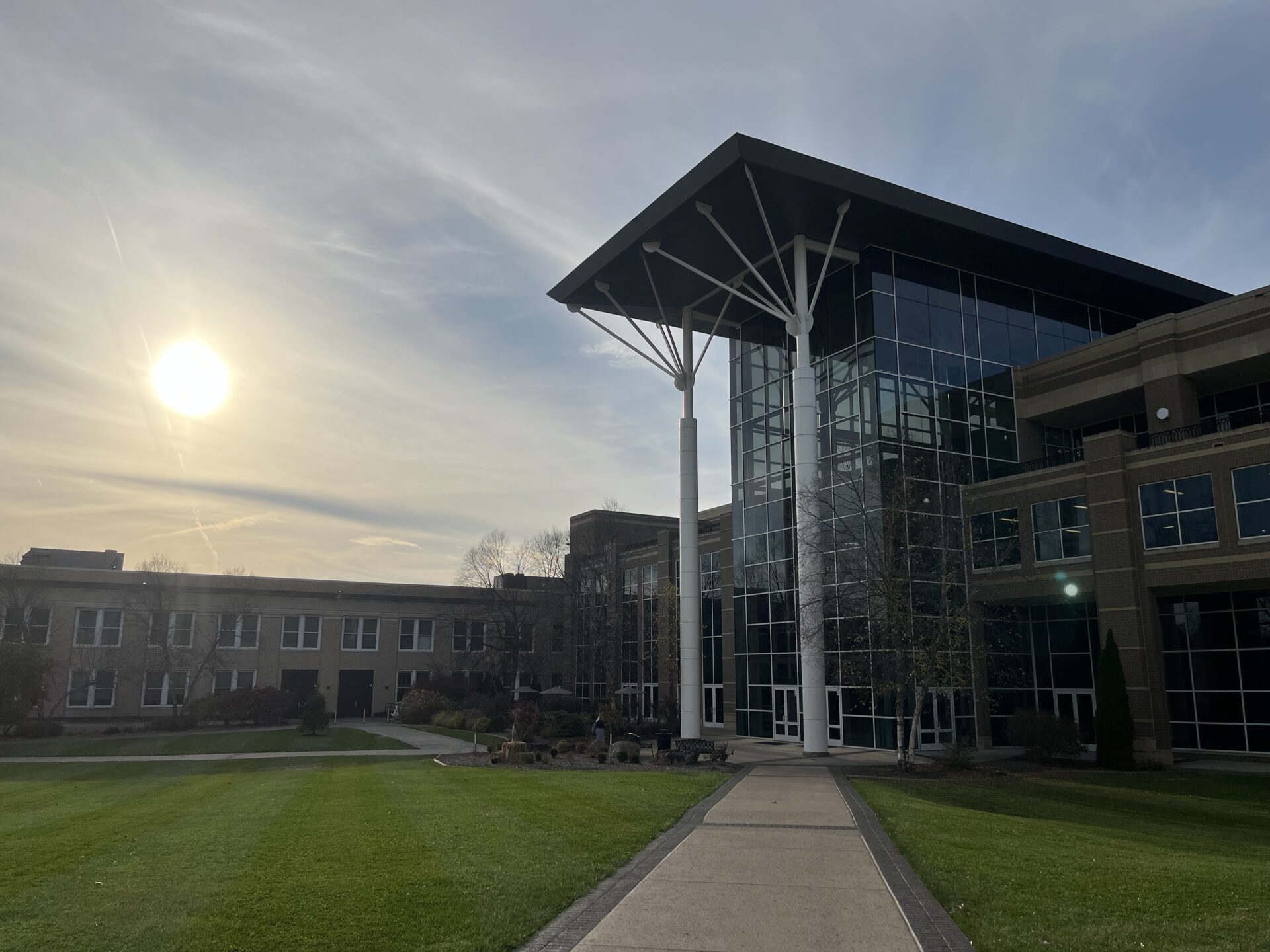Fairmont State University inaugurated its new president Thursday.
Mike Davis has held the position since last July, but he was formally invested as president Thursday evening, formally conferring the authority and symbols of the office to him.
Photo Courtesy of Fairmont State University
“It’s interesting that we do inaugurations after the President has been at a place for a particular amount of time, partially so they can get a sense of what the campus and the community in the state are like,” he said. “It’s pretty typical, but it’s actually interesting. This is the one year anniversary of my first round interview here at Fairmont State.”
Davis said he has spent the past nine months getting to know the university’s campus and staff. He is now leading the creation of a 10-year strategic plan for the university, set to be released in fall 2024.
“I think there’s different models of being a university president and mine is very much relying on the expertise of the people who work on my campus,” Davis said. “The past nine months have been figuring out where that expertise lies on campus, where people may not have been empowered in the past to utilize their expertise. And then what are gaps where we might have to hire some people or help people develop on our campus?”
He notes programs like aviation, surveying, nursing and education — where academics meet real world experience — as opportunities for growth and improvement.
“That’s what we’re going to look at more of, how do we create more of those hands-on opportunities for our students because our faculty are already great at the academic pieces, and they’re very good at the hands-on pieces,” Davis said. “We’re gonna find ways to augment those sorts of opportunities for our students.”
Davis comes into the leadership role just as the state’s campus carry law takes effect this summer. He said the short timespan for implementation, compounded by his new ascendance to leadership, makes the process frustrating, but that the university is moving forward.
“Part of how we enact this is not just what we do, but how we talk about it,” Davis said. “It was the most common question I got during my interview, ‘What do you think about campus carry?’ It’s the law, we’re gonna follow the law. I actually don’t think it materially will change many of the things we’re doing on campus. But I think how we talk to each other about it, how we treat each other, if you want to carry a firearm on campus, you’re now legally allowed to, but if people feel unsafe about that, let’s not rub it in their face, let’s not make them feel more unsafe than they do.”
Davis said there are days he still cannot believe he has the opportunity to lead a university, and Thursday’s ceremony is an opportunity to celebrate.
“It’s definitely a humbling experience to get to stand up there today and talk about who we are, who we’re going to be and how people have helped me get to where I am.”
